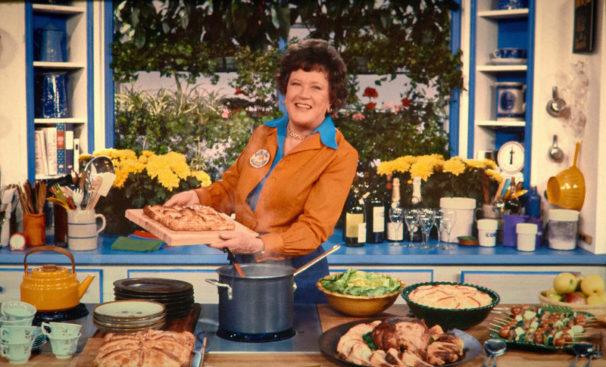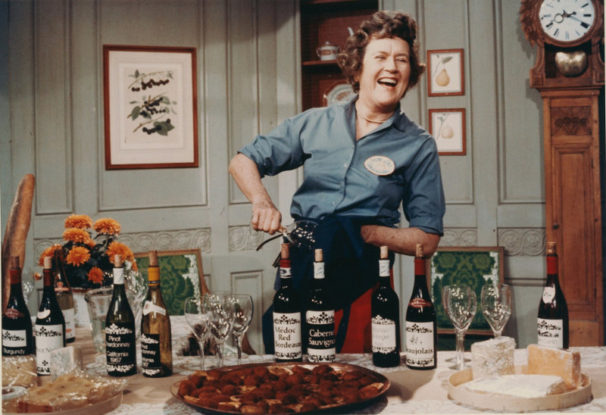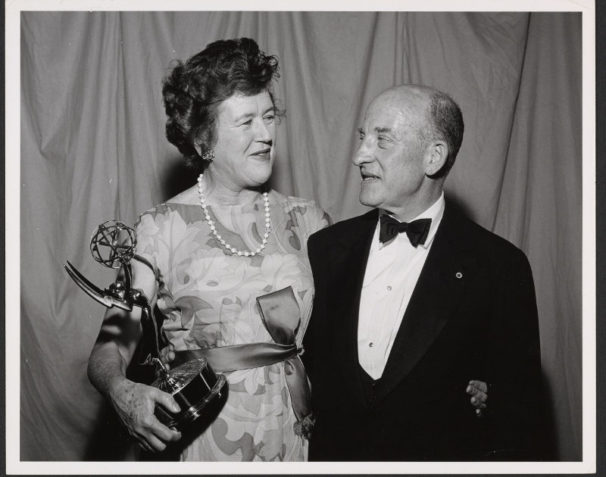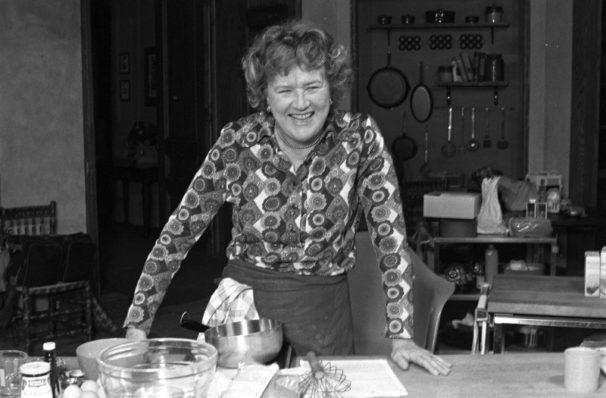
The Chinese philosopher Lao Tzu is ‘said’ to have said, “When the student is ready, the master will appear.” American homemakers didn’t realize it in the post-World War II decade, but Julia Child was the master they awaited – a down-to-earth cookery guru to guide them away from pre-made mixes, frozen variety trays, and the absolute scourge of savory gelatins. PBS became the conduit to fame for this fifty-something kitchen queen with a bouffant hairdo and a boisterous voice.
Such has been the appetite for a Julia Child movie that fans, and the Oscars, settled for half of one in 2009. Julie & Julia scored Meryl Streep an Oscar nomination for her half of the movie. The other half, featuring Amy Adams as contemporary food blogger Julie Powell, was comparatively dismissed.

Julia arrives in theaters as a documentary to satisfy curiosity about the genuine article, and because she was not media shy, there’s enough existing audio to effectively let Child narrate the thing from beyond the grave. This time, the Julia Child Foundation fully endorsed and cooperated, even for a handful of scenes that show Child’s occasional, less flattering side. Co-directors Julie Cohen and Betsy West, who last documented the life of the equally iconic RBG, intersperse new interviews with peers and relatives alongside appetite-porn close-ups of ingredients, and copious archival material.

Excerpts from the private writings of Julia and her beloved husband Paul Child elaborate on their relationship by revealing its brutal honesty. Early on, she found him physically unattractive; he found her annoying. But they could be just as blunt about themselves. On her mastectomy, Child simply wrote in her journal: “Left breast: off.” Paul’s comforting response, so blunt and funny as to not be spoiled here, hits the perfect note.
The movie mostly breezes through Child’s early life, kicking into gear when it covers her war years with OSS, meeting Paul, and learning to cook in Paris on the G.I. Bill. From there, it covers the different beats of her trailblazing celebrity chefdom, and how that has influenced everything from the Food Network to online recipes with lengthy personal anecdotes (like those of Julie Powell, and Child would disdain that association). Sadly, one suspects even after the groundbreaking work she did, today’s television food shows would be reluctant to employ an older woman whose omelet crumbles rather than flips. Her suddenly severed fingertip was memorably spoofed by Dan Aykroyd on Saturday Night Live. These bumbling errors, mandated by a low budget and long takes, became a crucial part of her likability.
Cohen and West aren’t content to keep Julia Child a safe cultural touchstone. Her political journey from right to left was key to her personality, a transition that is highlighted in the film. Archival footage shows small crowds of anti-abortion protesters upset by her Planned Parenthood support; today, an entire major segment of the news cycle would demonize her—and probably will anew, once Julia releases wide.
No doubt this documentary will inspire another fictional biopic, but save Meryl Streep, who’s been there and done that, it’s hard to imagine any actress keeping pace with the real deal. For fans of Julia Child, Julia may serve as both refresher and a delight. To folks less familiar, it’s, at minimum, a media-history lesson. Even if you aren’t as excessively fond of butter as she.

photos: courtesy sony pictures
Luke Y. Thompson is a film critic and editor for many publications including Films Gone Wild, Superhero Hype and Cinegods. Since 1999, his work has appeared in most major Los Angeles print publications, from the LA Weekly to the LA Times and several now-discontinued weeklies in between.
Julia | now in theaters
